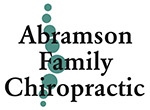Postural Faults Common in Office Workers with Neck and Back Pain
Examinations of 99 office workers with neck and mid-back pain—a common combination in this population—revealed that 90 exhibited scapular dyskinesis (abnormal movement of the shoulder blade) on one of both sides. Additionally, the majority had postural deviations that include rounded shoulders, forward head posture, and thoracic hyperkyphosis (slumped upper back). Doctors of chiropractic frequently treat office workers with neck and mid-back pain using a multimodal approach that includes manual therapies, posture correction exercises, and ergonomic assessments. International Journal of Occupational Safety and Ergonomics, March 2023
Severe Sleep Apnea May Double Risk for Hospitalization for Pneumonia
An analysis of data from the Atherosclerosis Risk in Communities study revealed that older adults with severe obstructive sleep apnea (OSA) were nearly two times more likely to be hospitalized for pneumonia during the 20-year study. The authors of the analysis conclude, “OSA patients may benefit from more aggressive efforts to prevent pneumonia and other infectious conditions.” Chest, April 2023
Modified Mediterranean Ketogenic Diet May Reduce Alzheimer's Risk
Gamma-aminobutyric acid (GABA) is responsible for inhibiting the excitability of brain cells and balancing the neuronal activity required for healthy brain function. Past research has associated GABA dysfunction with neuropsychiatric conditions such as Alzheimer's disease. In a recent study, researchers observed that patients with mild-cognitive impairment experienced an increase in GABA-producing microbes in the gut after switching to a modified Mediterranean ketogenic diet (low carb emphasizing healthy fats and proteins), which researchers suspect may lower the risk for progression to Alzheimer’s disease or another form of dementia. Alzheimer's & Dementia, March 2023
Exercise Cuts Depression Risk Nearly in Half
Following an analysis of data from the Brazilian Longitudinal Health Study, researchers report that engaging in 150-300 minutes of moderate-to-rigorous physical activity each week can reduce the risk for clinical depression by 45%. Journal of Affective Disorders, May 2023
Short Sleepers More Likely to Have ADHD?
Assessments of 381 preschoolers revealed that small children who do not get sufficient sleep each night (10-13 hours) are nearly two times more likely to exhibit symptoms of attention-deficit/hyperactivity disorder (ADHD). Anales de Pediatría, April 2023
Pets May Help Prevent Food Allergies in Children
Past research suggests that owning a pet is linked to a reduced risk for respiratory allergies in kids. Now, a new study notes this protection may extend to food allergies as well, particularly allergies related to eggs, milk, and nuts. First study author Dr. Hisao Okabe notes, “In terms of food allergies, pet exposure during fetal and early infancy may be good in some cases… We hope that this message will help alleviate some of the concerns about pet ownership.” PLOS ONE, March 2023
“We think too much and feel too little.” ~ Charlie Chaplin
This information should not be substituted for medical or chiropractic advice. Any and all health care concerns, decisions, and actions must be done through the advice and counsel of a health care professional who is familiar with your updated medical history.
